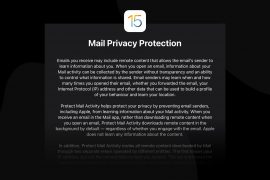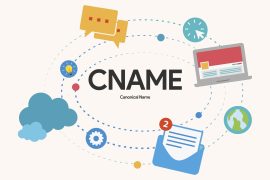Your team is looking for new accounts, but your files are not progressing. Buying ready-made databases? Too risky. Collecting addresses one by one? Too slow. In between, there is a discreet and efficient way: email scraping. Let’s explore the tools that work.
What is email scraping and how does it work?
Email scraping is a method of automatically collecting email addresses that are publicly visible on the web. To do this, a tool called an “email scraper” browses website pages, detects and records the addresses it finds.
Here are the main steps:
- Site exploration – The tool visits the pages of a website (for example, the “Contact”, “Team”, “About” sections) to look for visible addresses.
- Address detection – It recognizes standard email formats (name@company.com, contact@site.fr) and automatically records them.
- Filtering and sorting – The tool removes duplicates and can filter out generic addresses (like info@ or support@) to keep only relevant emails.
- Verification – Some email scrapers include a validation module to ensure the addresses actually exist and won’t cause a bounce.
- Export – Once the collection is complete, the results are exported as a file (CSV, Excel) or directly connected to a CRM or an emailing software.
The purpose of email scraping is not to randomly gather as many addresses as possible but to find relevant and usable contacts for the company conducting the extraction.
Common uses of email scrapers
Beyond mere list building, these tools are favored by a variety of profiles. Sales teams use them to quickly identify key contacts, while HR managers expand their pool via targeted extraction on specialized sites. Agencies conducting public relations campaigns also find these tools valuable for distributing their releases to journalists or bloggers.
The efficiency mainly comes from automation, which drastically reduces the time spent on repetitive tasks. Once the target URL is provided, the program analyzes its internal structure, detects hidden addresses within detail pages, and then centralizes all the information in an exportable table.
- B2B and B2C sales prospecting
- Competitive and sectoral monitoring
- Content marketing and PR campaigns
- Specialized recruitment via job platforms or LinkedIn
Main challenges and limitations encountered
The promise of speed and increased productivity should not mask certain drawbacks. Many sites implement anti-bot systems or restrict access to personal data to avoid misuse. It’s not uncommon to find an incorrect or obsolete address among the results, linked to outdated or partially protected content.
Many tools now include an initial layer of validation, but a manual sorting is still essential before any commercial use. The user may also face temporary IP blocks during intensive searches on the same domain, hindering the collection of large lists.
The legal framework of email scraping
Email scraping is not prohibited, but its use is strictly regulated. In France, email addresses, including professional ones, are considered personal data. This means they are protected by the GDPR and CNIL rules.
In concrete terms, emails can only be collected when they are publicly visible, such as on a company’s website. Their use must be based on a legitimate reason, like B2B prospecting.
When someone is contacted, they must understand why a company is reaching out to them and must be able to easily refuse to receive further messages.
Another point: it is important to avoid personal addresses (such as those on Gmail, Outlook, or Yahoo) because they fall under a much stricter framework.
Finally, collected data must not be retained indefinitely: it is imperative to delete it as soon as it is no longer needed for prospecting.
| Challenge Encountered | Practical Consequence | Recommended Solution |
|---|---|---|
| IP blocks / anti-scraping | Temporary halt in collection | Use of proxies or random pauses |
| Incomplete or outdated data | Decrease in list quality | Systematic validation post-extraction |
| Strict regulatory framework | Risk of legal sanctions | Obtaining consent, clear legal notices |
Top 6 best email scrapers
The email scraping tool market is vast, but some stand out for their efficiency and reliability, especially for B2B prospecting. Here’s an overview of the most relevant solutions in France today, with their strengths and limitations.
- Lusha: Instant extraction and profile enrichment, ideal for targeting B2B decision-makers.
- Snov.io: Offers smart targeting and campaign tracking, useful for analyzing the performance of sent emails.
- Clay: Allows fine segmentation of your searches and easy integration of results into existing workflows.
- Hunter: Quick identification of valid professional addresses on domain names, with direct verification option.
- Skrapp: Valuable for obtaining listings from LinkedIn and other professional social networks.
- Linked Sales Navigator: Offers an advanced search on the leading B2B social network with targeted extraction.
- Saleshandy: Combines email extraction and smart follow-up management to increase open rates.
- Email Extractor Online: Easy to use, works from the browser, and is perfect for beginners.
- Phantombuster: Advanced automation with ready-to-use scripts, highly appreciated by growth hackers.
- Kaspr and Waalaxy: Two solutions focused on multi-channel engagement, facilitating lead synchronization between popular CRMs and social platforms.
Towards an agile organization of digital prospecting
With the evolution of data mining tools, every prospector can tailor their toolbox by combining classic email extraction, campaign sequencing, and behavioral analysis. Competitiveness now relies on the ability to manage an increasing volume of data while remaining compliant with major international regulatory frameworks.
Monitoring new developments, testing different approaches according to one’s objectives, and maintaining a human element in exchanges remain essential. A reasoned use of email scrapers saves time, enhances understanding of the target, and expands one’s field of action, while keeping transparency and trust in sight.







